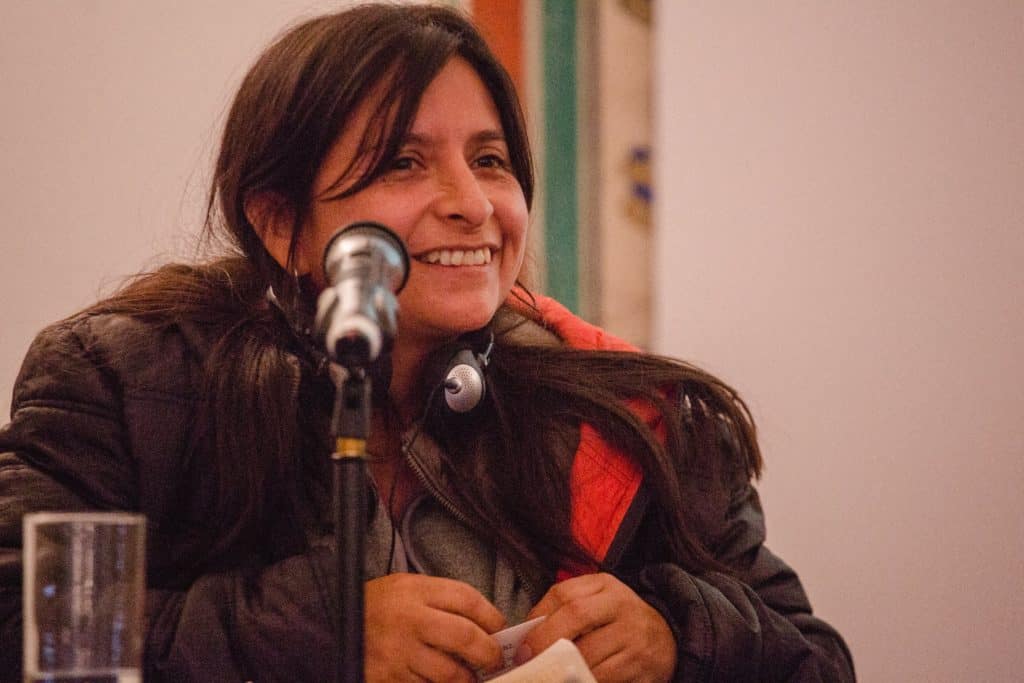The following is an excerpt from the ABColombia report “Towards Transformative Change: Women and the Implementation of the Colombian Peace Accord”. To access the full report in English and Spanish, click here.

Indigenous women want peace, but not in any form or incompletely. For us, peace means guarantees that we can implement our Life Plans.
Emilse Paz, Tejido Mujer ACIN
Colombia is a country of regions, with at least 102 Indigenous nations and 271 Afro-descendant Community Councils. The Ethnic Commission for Peace and Defence of Territorial Rights together with international pressure finally achieved the inclusion of a chapter on Ethnic Perspectives in the Final Peace Accord (FPA). This Chapter outlines safeguards and guarantees for collective territorial and political rights of ethnic communities. These rights are established in the Colombian Constitution of 1991 and international norms including the International Labour Organization Convention 169 (ILO 169), and the UN Declaration on the Rights of Indigenous Peoples (UNDRIP).
Our dream is the demilitarisation of our territories, so they are peace territories, as they were years ago. There we can exercise our self-determination as Indigenous peoples, and as Indigenous women… It is our dream as peace builders, that all of us together can work towards a sustainable and lasting peace with no violence. The day there is no violence towards Indigenous women, that is the day we can … begin to enjoy life. That is the dream of peace we have for all.
Emilse Paz, Tejido Mujer ACIN
According to the Chapter on Ethnic Perspectives, Indigenous, AfroColombian, black, palenquero, raizal and Roma communities see the structural causes of the war, and therefore sustainable peace and peacebuilding, in terms of addressing social, economic and cultural injustices. The FPA recognises that they ‘have suffered historical conditions of injustice, resulting from colonialism, slavery and exclusion, and from having been dispossessed of their land, territories and resources.’ (FPA 6.2.1) A safeguarding principle in this Chapter reaffirms the protection of pluralism, and states that ‘no action taken to implement the agreements can, be detrimental to the rights of ethnic peoples’. (FPA 6.2.3)
Indigenous women want peace but not in any form or incompletely. For us, peace means guarantees that we can implement our Life Plans. This requires conditions and guarantees that our rights as a people and as human beings are fulfilled, with total respect for our territories. We require Indigenous territories to be autonomous, free of all kinds of violence and projects that mean death for us.
Emilse Paz, Tejido Mujer ACIN
The FPA, the Colombian Constitution and national laws all place an obligation on the State to undertake a free, prior and informed consultation and consent process (FPIC) with ethnic communities on laws and regulations that may affect their territory. The FPA also provides ‘maximum guarantees … for the full exercise of their human and collective rights in the framework of their own aspirations, interests and world views’. (FPA 6.2.1)
Indigenous and Afro-Colombian women highlight that it is vital that appropriate measures are adopted to guarantee their equal participation in what is the key tool for safeguarding their cosmovision of development – FPIC – and other decision-making spaces. This reflects Recommendation 34 of CEDAW to Colombia in 2018, ‘to guarantee Indigenous and Afro-Colombian women their right to prior consultation … with respect to, inter alia, the establishment of mega-projects; and to promote their increased political participation at the national level and within their communities.’ [1]
Despite the centrality of FPIC to Indigenous and Afro-Colombian rights, there is a draft law being proposed at the time of writing to ‘Regulate the Fundamental Right to Prior Consultation’, which has generated serious concerns that instead of safeguarding their rights, this legislation could minimise and restrict them.
Ethnic Minority Communities: Implementation Mechanisms
The FPA establishes a High-Level Special Committee for Ethnic Peoples (Instancia Especial de Alto Nivel con Pueblos Étnicos); only two out of the eight people sat on this committee are women. This mechanism allows for participation in all processes of implementation and verification of the agreements. It also provides a mechanism for prior consultation on all elements of the implementation of the FPA that impact on ethnic communities.
The process to select representatives for the High-Level Women’s Commission (SCIGA) of the CSIVI to oversee the implementation of the FPA resulted in the appointment of only one Indigenous woman, and not a single Afro-Colombian woman. Afro-descendant women’s organisations considered they had been discriminated against and that the perspective of Afro-descendant women who have been seriously affected by the armed conflict was excluded from the implementation plans. CSOs recognised this and due to their work, the SCIGA was increased to eight members (and eight substitutes) in order to include Afro-Colombian women.
The Ethnic Chapter contains agreements for PDETs to be implemented in Indigenous and Afro-Colombian territory to include special consultation mechanisms and incorporate the Life Plans and Ethno-development Plans into the PDETs. The ability to deliver on the RRI and the Ethnic Chapter will largely depend on how Colombia resolves issues related to land and resource rights of Afro-Colombian and Indigenous Peoples.
Download the full report in English and Spanish:
Notes
[1] UN Committee on the Elimination of Discrimination against Women, Concluding Observations on the combined 7th and 8th periodic reports of Colombia (CEDAW/C/COL/Co/7-8, 29 October 2013)
Video: Report Launch in Bogotá on 27 November 2018
Further reading:
- ABColombia, Only 4% of gender-based agreements have been fully implemented in Colombia
- To fly again: Alicia’s Story (Buenaventura)
- ABColombia, The Participation of Women in the Colombian Peace Process
- ABColombia, ‘Survey of the Prevalence of Sexual Violence against Women in the Context of the Colombian Armed Conflict 2010-2015’
- Conversatorio y lanzamiento público del informe “Hacia un cambio transformador”
- ABColombia, Colombia: Women, conflict-related sexual violence and the peace process (Report of 2013)
- ABColombia, Una paz sostenible para las mujeres colombianas
- ABColombia, Tribute to Colombian Women Human Rights Defenders
